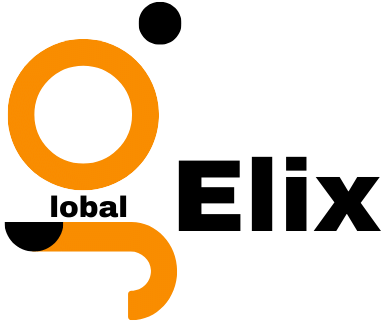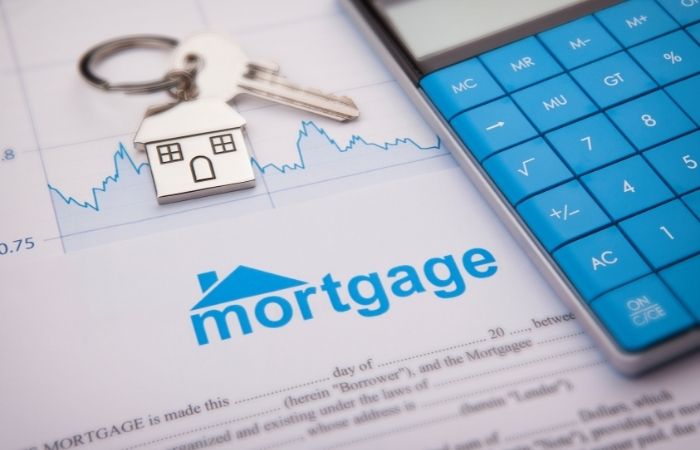Mortgage
What is a mortgage:
The definition of a mortgage is that it is used to describe the loan used to acquire or maintain a house or land and other kinds of real property. In simple terms, The borrower agrees to repay an amount to the lender in time, generally by regular installments that are split into interest and principal. The property acts as collateral for the loan. It is the simple definition about “what is a mortgage” for you to understand easily.
A borrower has to apply for a mortgage with the lender they prefer and make sure that they satisfy a variety of criteria, including minimum credit scores and down payment. Mortgage applications undergo an extensive underwriting process prior to when they are accepted into the closing phase. The types of mortgages vary according to the requirements of the borrower—for instance, fixed and conventional rate loans.
How do mortgages work?
Your lender — the institution or bank lending you the money owns the property when you take out a mortgage to buy an apartment. Then, you pay the funds in return to your lender and also pay interest. The borrower typically makes a payment every month throughout the term that the loan is.
Mortgages can come with a more or less lengthy-term of repayment. They may be characterized by interest rates that remain the same or change in time, and they might have different eligibility criteria. The majority of these differences depend on your preference for the repayment terms and the level of risk that is assumed from the lending institution.
The most popular mortgage type is the fixed rate. According to a report from 2022 by the National Association of Realtors, 94% of buyers chose a fixed-rate mortgage. About 1% selected adjustable-rate mortgages, while 2% went for different loan terms.
Your mortgage is paid off sooner while paying fewer terms of interest accrued for the loan when you select short-term loans. However, this will mean higher monthly payments. Loans with longer terms mean lower monthly payments but the longer period of payoff and, in general, higher interest rate typically means higher interest rates over the course. That’s how does a mortgage work.
Types of mortgage loan:
- Conventional loan – best for those with a high credit score
- Jumbo loan – are ideal for those with great credit who want to buy an expensive house
- Government-insured loan – Great for borrowers with low credit scores but not enough cash to make a downpayment
- Fixed-rate mortgage – are ideal for those who need the security of having regular payments over the duration of the term of the loan
- Adjustable-rate mortgage – are ideal for those who don’t intend to remain in their home for long as well as are comfortable taking the possibility of paying higher interest in the future.
1- Conventional loans:
Conventional mortgage loan simply means that the loan isn’t an official government program. Conventional loans generally cost less than FHA loans; however, they are harder to get. There are two primary kinds of conventional loans.
Conforming loans:
Conforming loans are backed by limits on loan amounts determined by the government. Other guidelines applicable to serving loans have been established through Fannie Mae or Freddie Mac, companies that offer loans with conformity as a guarantee.
Non-conforming loans:
Non-conforming loans are not as standardized. The eligibility, price, and other features may vary significantly from lender to lender, which is why it is crucial to evaluate different offers.
2- jumbo loan:
A Jumbo mortgage Loan is a type of mortgage for a property that is too costly to qualify for a traditional conforming loan. The maximum amount of conforming loans is $647,200 in most counties determined by the Federal Housing Finance Agency (FHFA). Homes that are over the limit of local conforming loans need a jumbo loan.
Also known as non-conforming conventional mortgages, Jumbo loans are thought to be riskier for lenders since they’re not backed through Fannie Mae as well as Freddie Mac, meaning the lender isn’t protected from any losses if the borrower fails to pay. Jumbo loans typically come in either a fixed fee or variable rate and are available with terms.
3- Government-insured loan:
A government-insured mortgage is precisely what it is: a loan that the government guarantees. The mortgages that the government insures are sometimes called government-backed mortgages. However, the definition is identical. This means that the loan is guaranteed with the help of the government.
The objective of the government-backed loans is to make sure that those who may not be able to get a typical mortgage for different reasons can access mortgage credit and therefore are capable of purchasing a house.
Government-insured loans offer many benefits, such as lower down-payment requirements than traditional mortgages. However, a federally insured mortgage isn’t always the most suitable option for every borrower.
Types of Government-insured loan:
FHA loan:
In the beginning, not all lenders could provide FHA loans. The FHA must accept a lender for FHA-backed mortgages. These loans come with more relaxed requirements in terms of down payment and credit in comparison to other loan options available for example, a 3.5 percent down payment is the most precise. It’s accessible to everyone who can get the loan to buy or refinance their primary residence and meet the other conditions of a loan. FHA loans are generally more popular among first-time homebuyers, and as it is, they are often called the “first-time homeowner” loan.
VA loan:
This loan mortgage meaning is that it is available to those who are veterans, Reservists, active duty military, or even parents of vets. The VA loan is usually regarded as the best option for loans out available because it does not require a down payment, does not require personal mortgage insurance, is flexible in the credit score, and so on.
USDA loan:
They are a great option when you’re looking to buy homes in a small, rural, or eligible suburban area because USDA loans offer the chance to purchase a house in these areas with affordable interest rates. “Smaller” isn’t the same as “rural” and also isn’t always a reference to “farmhouse” however it simply implies that the area must have a number of people to qualify as “rural” Some are pretty suburban.
4- Fixed-rate mortgage:
Fixed-rate mortgage meaning is a reference to a home loan that has fixed interest rates throughout the duration that the loan is in effect. The mortgage is characterized by a steady interest rate from start to end. Fixed-rate mortgages are very popular for people who want to know the amount they’ll be paying each month.
Different Types of Fixed-Rate Mortgages:
The two different types of Fixed-Rate Mortgages are given below:
30-Year Fixed-Rate Mortgage:
A 30-year fixed-rate mortgage is a home loan repayable over a period of 30 years. The interest rate stays constant throughout the loan. It means it won’t change for 30 years. The 30-year fixed-rate mortgage is one of the most popular mortgages. After all, it has lower monthly payments because the amount of repayment is spread (amortized) across 30 years. A fixed-rate 30-year mortgage gives you a stable payment. This makes it simpler to budget because the monthly installments are the same rate for 30 years, regardless of the market’s conditions. Many homebuyers prefer this method because of the security that it offers.
15-Year Fixed-Rate Mortgage:
The name implies that a fixed-rate 15-year mortgage is repayable over 15 years. This is half that of the 30-year mortgage. The fixed-rate mortgage for 15 years is a popular choice for many borrowers since it usually has an interest rate that is lower than its counterpart with a 30-year term. The 15-year period also permits homeowners to accumulate equity in their homes faster since they will pay less interest over the duration of their loan. Much like the 30-year mortgage, the 15-year mortgage can provide the stability of payment. However, because the loan’s term will be shorter than the 30-year term, your amount is more likely to be higher than if the loan was due within 30 years. For some borrowers, the 15-year mortgage is an excellent alternative.
5- Adjustable-rate mortgage:
The term “variable-rate” mortgage (ARM) is a type of loan where the rate of interest may fluctuate periodically and is usually based on an established index. The ARM loan can have an initial fixed-rate period which is usually between 5 and 10 years. The interest rate can fluctuate (adjust) every year after following the time the initial fixed period is over. For instance, with an ARM loan with 5/1 on 30 years, your interest rate would remain fixed during the first five years, but it could change either up or down every subsequent year for the following 25 years.
Types of Adjustable-rate mortgage:
Hybrid ARMs:
The most popular loan type for adjustable-rate mortgages is hybrid ARMs. They come with a fixed initial interest rate, which later changes to a variable rate. Hybrid ARMs can be set up for 1, 5, or 7, 10 years, with the most commonly used being the 5/1 ARM with fixed interest for five years. The rate after that changes each year.
Interest-only ARMs:
This kind of ARM does not need you to pay the principal of your loan at first. Instead, it requires that you pay the accrued interest you owe each month for a set period of time. Once this period is over, your loan balance is set to ensure that you are required to pay the principal as well as the remaining interest accrued. Because interest-only ARMs are based on variable interest rates, they can change or increase depending on the market’s fluctuations.
Payment-option ARMs:
This ARM loan allows you to select from a variety of options for your mortgage payment each month. They include paying principal and interest, but only paying interest, and making a minimum payment of interest. This is referred to as “limited payment” any money that you aren’t able to pay will be added to the principal of your loan, which could increase the amount of interest you pay.
Conclusion:
I hope that you understood from the above context about what is mortgage, mortgage definition, Its types and how mortgages work. So if you have any queries regarding this topic then make sure to ask it in the comments.
 Global Elix
Global Elix 

